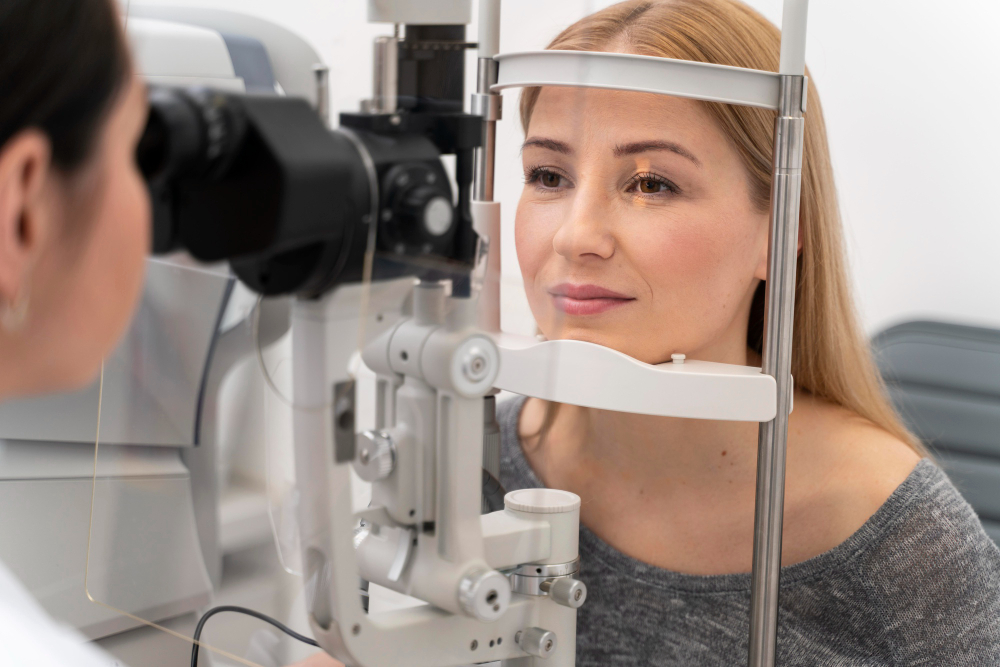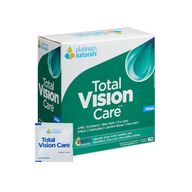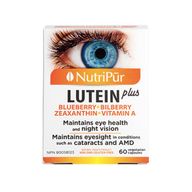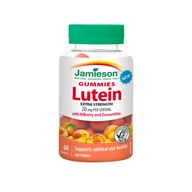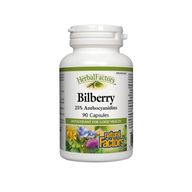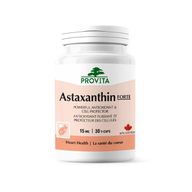Total Vision Care: Lutein, Zeaxanthin, Astaxanthin and Bilberry Extract
Vision is a critical sense that is integral to daily activities and overall quality of life. Good vision helps us to navigate the world around us, stay independent, and enjoy life to the fullest. Unfortunately, vision issues are common, especially as we age, our eyes are more susceptible to damage from environmental stressors such as blue light, UV radiation, and pollution.
Taking natural supplements is one way to protect our eyes and promote health vision. A significant benefit of natural products for vision care, is that they have antioxidant properties. Antioxidants help protect cells from damage caused by free radicals, which can contribute to age-related vision issues. In this article, we will examine 3 popular natural supplements for eye and vision care.
1. Leutein and Zeaxanthin
Lutein and zeaxanthin are carotenoids commonly found in high quantities in leafy green vegetables. Carotenoids are natural pigments that give fruits and vegetables their bright colors. Lutein and zeaxanthin are found in high concentrations in the macula of the eye, which is the central part of the retina. Here, they act as natural filters, absorbing blue light and protecting the eye from damage caused by free radicals.
A review published in the American Journal of Ophthalmology found that supplementation with lutein and zeaxanthin may reduce the risk of Aged-Related Macular Degeneration (AMD), which is a leading cause of blindness in older adults.
Another study published in JAMA Ophthalmology found that higher dietary intake of lutein and zeaxanthin was associated with a reduced risk of cataracts.
2. Bilberry Extract
Bilberry is a European berry similar to the American blueberry. It has darker flesh and tastes tarter than blueberry. Bilberry has been used for centuries to improve vision. It is high in antioxidants like anthocyanins, which may be able to reduce retinal inflammation and eye strain.
A study published in the Journal of Medicinal Food found that bilberry extract improved visual function and reduced eye strain in people with nearsightedness. The study also found that bilberry extract improved blood flow to the eyes.
A study published in the journal Nutrients found that bilberry extract improved visual function and reduced symptoms of eye fatigue in people who use computers for extended periods. The study also found that bilberry extract improved blood flow to the eyes.
3. Astaxanthin
Astaxanthin is a naturally occurring carotenoid that is found in seafood, such as salmon, shrimp, and lobster. It is particularly effective in protecting the eyes from oxidative stress, which can lead to damage and vision loss.
One study published in the journal Molecular Vision found that astaxanthin supplementation improved visual acuity and reduced inflammation in the eyes of people with early age-related macular degeneration (AMD).
Glaucoma is a group of eye diseases that can cause vision loss and blindness. It is often caused by increased pressure in the eye, which damages the optic nerve. Astaxanthin has been shown to help reduce intraocular pressure, which may help to prevent or slow the progression of glaucoma.
One study published in the journal Acta Ophthalmologica found that astaxanthin supplementation reduced intraocular pressure and improved visual function in people with glaucoma.
Beyond these supplements, good nutrition is also essential for maintaining healthy vision. By including foods that are high in omega-3 fatty acids, vitamin A, and vitamin C in your diet, you can help to support good vision and reduce the risk of eye diseases.
References:
1.Ma L, Dou H, Wu Y, et al. Lutein and zeaxanthin intake and the risk of age-related macular degeneration: a systematic review and meta-analysis. Am J Ophthalmol. 2012;153(2):218-224.e1.
2. Wu J, Cho E, Willett WC, Sastry SM, Schaumberg DA. Intakes of lutein and zeaxanthin and the risk of cataract progression in the Nurses' Health Study. JAMA Ophthalmol. 2014;132(2):142-149.
3. Nagai N, Ito Y, Saito Y, et al. Effects of bilberry (Vaccinium myrtillus) extract on visual acuity in healthy volunteers. European Journal of Nutrition. 2019;58(7):2829-2836.
4. Kujawa M, Szewczyk G, Słomski R, et al. The use of bioactive substances in the prevention and treatment of computer vision syndrome – review of the literature. Nutrients. 2020;12(6):1615.
5. Nakamura, A. et al. (2010). Changes in Visual Function and Macular Edema in Patients with Post-Operative Cystoid Macular Edema Treated with Astaxanthin. Experimental and Therapeutic Medicine, 1(1), 109-113.
6. Nagaki, Y. et al. (2002). Effects of Astaxanthin on Accommodation, Critical Flicker Fusion, and Visual Function in Patients with Eyestrain or Fatigue. Journal of Ocular Pharmacology and Therapeutics, 18(4), 365-372.
